Fritextsökning
Artiklar per år
Innehållstyper
-

Newly discovered gene variant linked to protection against abdominal obesity
American researchers believe they have identified a rare gene mutation that protects against abdominal obesity and metabolic syndrome. The ambition is that the discovery will lead to new treatments that can help reduce the risk of type 2 diabetes and coronary artery disease.
-

BioVentureHub CEO: “Companies with a high degree of interaction achieve greater success”
For the first time since its inception, AstraZeneca’s BioVentureHub can now recruit new companies, as some of its tenants have grown significantly and are leaving the hub. This is the message from the biohub’s CEO Magnus Björsne in an interview, in which he also highlights a study that points out that companies with a high degree of interaction with other companies achieve greater success.
-

Study: Our behaviour may have been guided by wishful thinking during the pandemic
A new study suggests that we systematically underestimate health risks if and when it suits us. This was especially true during the pandemic, as our risk assessments may have been guided by wishful thinking rather than a rational perception of the risks.
-

Ojämställt i toppen hos Uppsalas life science-företag
STUNS Life science i Uppsala har undersökt hur jämställdhet mellan man och kvinna ser ut i regionens life science-företag. Och trots att Sverige hör till ett av världens mest jämställda länder, är den kvinnliga representationen låg på ledningsposter i Uppsala.
-
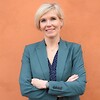
Marie Gårdmark: New incentives for orphan products on its way
"Let’s hope that the learnings from development of new therapies for rare diseases will spill over to more common conditions, orphan products paving the wave for drug development in a broader context", writes Marie Gårdmark in a column.
-
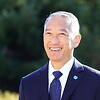
IVI’s Director General on establishing in Sweden: Will need up to 40 employees
The International Vaccine Institute, IVI, hopes to have its first staff on-site in Stockholm within a couple of months, says the institute’s Director General Jerome Kim in an interview with Life Science Sweden.
-

The first vaccine derived from cowpox
The British rural doctor could not forget the words of the peasant girl. Could that really be true? A couple of decades later, on 14 May 1796, he performed the world’s first smallpox vaccination, and a medical breakthrough had occurred.
-

Anna Törner: To kill your darlings
Hopes were high when Anna Törner and her colleague started a study on a dietary supplement that seemed unbelievably good. “Enthusiastically, we dreamed of exciting results and perhaps a publication in a high-impact journal,” she writes in a column.
-

Investments worth 40 billion in the Öresund region – “A huge investment wave”
A new report reveals that medical companies in the Oresund region are investing like never before.
-

New rules for diagnostic products, but who will certify them? “An extreme shortage area”
In less than two weeks, new and stricter EU rules will enter into force for thousands of products used in important diagnoses of, among other things, cancer and Covid-19. However, not one single institute in the entire Nordic region is able to certify the diagnostics companies’ products according to the new regulations. “In the end, it risks affecting patients,” says Anna Lefèvre Skjöldebrand, CEO of Swedish Medtech.
-

Paolo Macchiarini in court – “The sole intent was to cure”
Paolo Macchiarini’s surgical procedure was illegal, life-threatening and caused severe and prolonged suffering to patients the prosecution claimed when the trial against the Italian surgeon began on Wednesday last week.
-

We will now publish more news in English – and offer yet another newsletter
Starting next week, Life Science Sweden will begin offering a newsletter entirely in English.
-
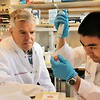
Elicera develops CAR-T against solid tumours – may become the first in the world
Today, there are five EU-approved CAR-T therapies, all focused on different types of blood cancer, but no one has yet succeeded in making the method work against solid tumours. At Gothenburg-based Elicera, they are working relentlessly to succeed in that field as well. “It is the largest field, and the potential is enormous,” says the company’s CEO Jamal El-Mosleh.
-

Björn Arvidsson: ”We need to change perspective”
If you say “life science” to a person on the street and ask them to explain what it is, you will probably get no good answer. The same question to your network will generate as many versions as the people you ask. Most likely, we will miss many opportunities with our lack of communication, writes Björn Arvidsson in a column.
-
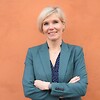
Marie Gårdmark: Finally, it’s time for a revision of the EU pharma legislation
A challenge for the EU Commission is to deliver a new framework that will also take care of another “pillar” of the pharmaceutical strategy, namely, to ensure that new medicines will be available for all citizens in Europe, writes Marie Gårdmark in a column.
-

Study: An objective diagnosis of constant tinnitus may be possible
A new method that measures brain activity during sound stimulation can make it possible to objectively diagnose and identify people who suffer from constant tinnitus, which was demonstrated in a study made by researchers at the Karolinska Institute.
-

Karolinska institutet får en halv miljard i forskningsanslag
Vetenskapsrådet beviljar 1,1 miljarder kronor till forskning inom medicin och hälsa fördelat på 14 lärosäten.
-
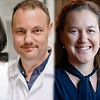
Nobeltider: Medicinforskarnas hjältar bland tidigare pristagare
Forskarinsatser som räddat miljontals liv, eller kommer att göra det, kommer på tal när vi låter fyra framstående svenska forskare välja sina favoritpristagare genom historien.
-

Nobelpris, akademikris och coronabråk – Göran K Hansson om tiden som ständig sekreterare
Från storslagna Nobelpris till solkigt forskningsfusk – och väldigt mycket däremellan. Som ständig sekreterare i Kungliga Vetenskapsakademien har Göran K Hansson haft mycket att hantera. Snart lämnar han posten. – Det finns en 70-årsgräns för uppdraget. Så ständigheten har sin begränsning, säger han.
-

Sweden and Denmark – this is how they choose their strategies
Scandinavia’s two major powers in pharmaceutical research have developed strategies for growth in life science, and both countries aim to become world leaders.
-
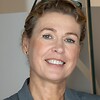
Anna Törner: You won’t find this many Concorde projects anywhere else
"Suddenly Concorde projects seem reasonable in life science because it´s about life and death", writes Anna Törner in a column.
-
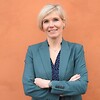
Marie Gårdmark: Big data evidence generation drives change in the EU regulatory system
Rapid developments in technology have led to the possibility for the generation and analysis of vast volumes of data. Will the availability of big data lead to fundamental changes to the regulatory system? In a column Marie Gårdmark, CEO and Senior Consultant at RegSmart Life Science, develops her views on this subject.
-

Column: Why there cannot be a complete cure for cancer – but there is certainly another way!
"Is there a new way we need to be thinking about how to prevent cancer?" Lucy Robertshaw reflects upon which is the smartest way to beat cancer.
-

Hård branschkritik mot planerade avgiftshöjningar
De aviserade avgiftshöjningarna för läkemedelskontrollen oroar branschen, som befarar att svensk konkurrenskraft ska drabbas.